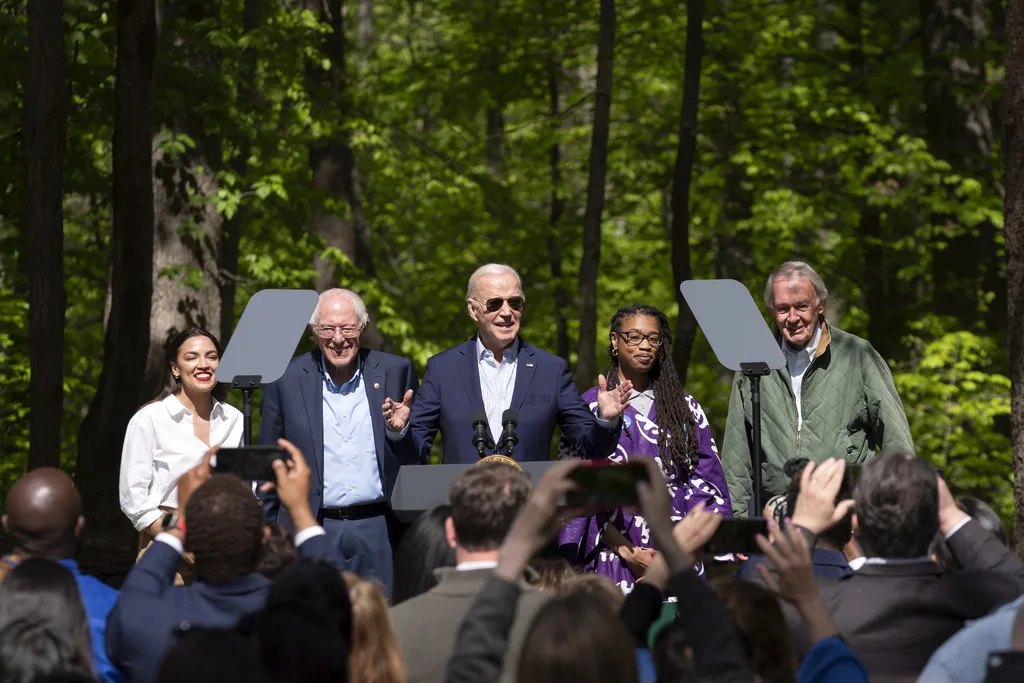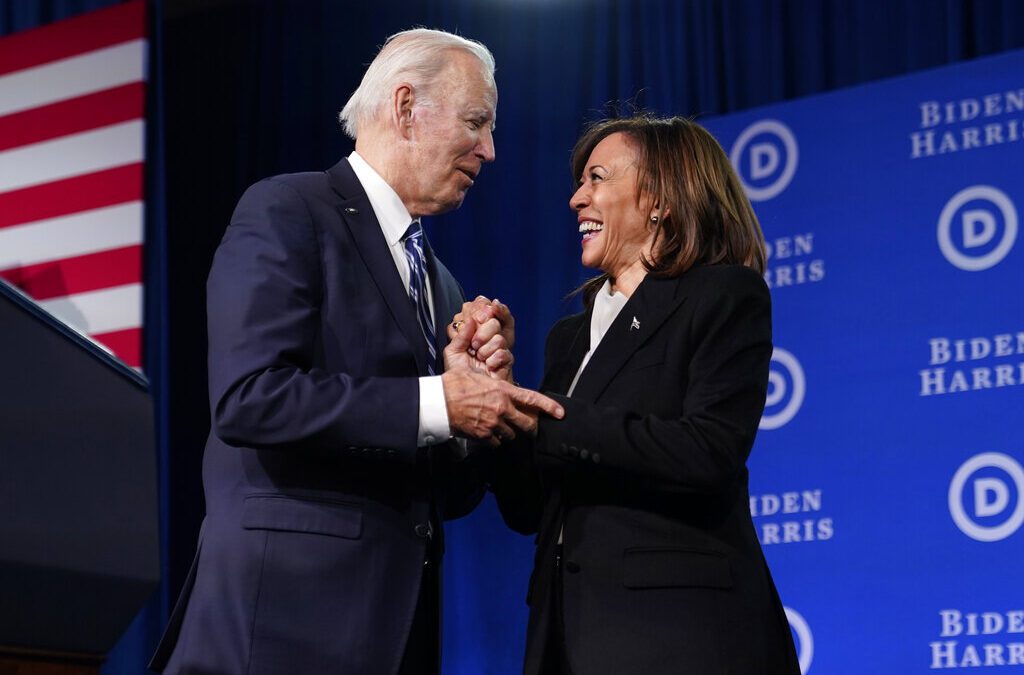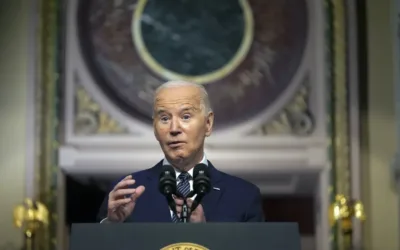
President Joe Biden speaks at Prince William Forest Park on Earth Day Monday, April 22, 2024, in Triangle, Va. Biden announced $7 billion in federal grants to provide residential solar projects serving low- and middle-income communities and expanding his American Climate Corps green jobs training program. (AP Photo/Jose Luis Magana)
The Biden administration on Monday announced the recipients of its Solar For All Program, a $7 billion climate program that aims to lower energy costs and reduce pollution in low-income communities by installing solar power systems on homes nationwide.
Funds will go to 60 recipients, the Environmental Protection Agency (EPA) announced in a news release. Forty-nine of these grants are state-level awards, five are multi-state awards, and six are going to Native American tribes.
The funding, which is provided by President Biden’s Inflation Reduction Act, is expected to provide residential solar projects to over 900,000 households nationwide and save low-income Americans $350 million per year, according to the EPA.
These awardees will use this funding to supplement the cost of solar for low-income consumers, or to make investments that facilitate solar installation, such as repairing rooftops or upgrading electrical panels on homes. The money can also be used to support things like workforce development and project planning, which will in turn improve community access to solar.
These projects are expected to eventually reduce emissions by the equivalent of 30 million metric tons of carbon dioxide.
“Solar is the cheapest form of electricity—and one of the best ways to lower energy costs for American families,” John Podesta, senior advisor to the president for International Climate Policy, said in a statement. “Today’s announcement of EPA’s Solar for All awards will mean that low-income communities, and not just well-off communities, will feel the cost-saving benefits of solar thanks to this investment.”
This solar funding is part of a $27 billion program under the Inflation Reduction Act called the Greenhouse Gas Reduction Fund, which offers money to low-income communities of color that have historically faced discriminatory policies related to industrial facilities.
“Low-income households have been disproportionately left out of our country’s clean energy transition,” Adam Kent, a green finance expert with the Natural Resources Defense Council told Politico.
These low-income consumers spend a higher percentage of their income on energy generally, and are therefore less able to afford the upfront costs of solar power, Kent added.
According to the EPA, non-white, low-income communities are also more likely to be located near polluting infrastructure, such as fossil fuel power plants.
“If you look at majority Black and Hispanic neighborhoods, there’s significantly less rooftop solar installed compared to majority white neighborhoods,” Kent said. “So, this is a program…about delivering the benefits of distributed solar to all communities throughout the country.”
The IRA requires that the EPA transfer these funds to recipients by the end of fiscal 2024. Then, the awardees will be responsible for distributing the funds through their own grant and loan programs.
Additionally, the Biden administration announced its plans to expand its New Deal-style American Climate Corps green jobs training program on Monday. Nearly 2,000 corps positions will now be offered across 36 states, including jobs that will be offered in partnership with North American Building Trades Unions.
In September, the administration announced an executive action to create the American Climate Corps program, which aims to train 20,000 young people for jobs focused on fighting climate change.
According to the White House, the program is a federal effort “to ensure more young people have access to the skills-based training necessary for good-paying careers in the clean energy and climate resilience economy.”
Those who enroll in the program will learn how to install solar panels, restore coastal wetlands, retrofit homes to be more energy-efficient, fight wildfires, and more. The program also intends to create a pipeline for these young people to get hired into the clean energy sector, which is expected to add millions jobs by 2030, due in large part to the Inflation Reduction Act.

Opinion: Biden and Harris made great progress on climate the past 4 years. Let’s secure the wins this November
August 16 marks the second anniversary of the Inflation Reduction Act, the Biden-Harris administration’s landmark legislation that made the largest...

Youngkin says Virginia will no longer follow stronger car emissions standards
The stronger standards are intended to reduce gas emissions by transitioning to EVs more quickly, a crucial part of addressing the climate crisis....

7 clean energy programs making an impact in Virginia
Virginia is making big changes in its move toward clean energy. Both national and local projects are introducing more sustainable and affordable...

Biden’s EPA announces rules to slash coal pollution, speed up clean energy projects
The Biden administration last month announced a set of four final rules designed to reduce harmful pollution from power plants fired by fossil...

VIDEO: Sen. McPike weighs in on Virginia’s environmental priorities
On Earth Day, the White House held an event at Prince William Forest Park to announce $7 billion in grants through the Environmental Protection...

How to apply for a job in the American Climate Corps
The Biden administration announced its plans to expand its New Deal-style American Climate Corps (ACC) green jobs training program last week. ...




